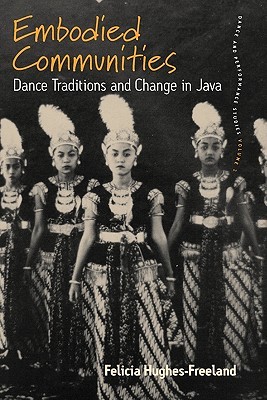
- We will send in 10–14 business days.
- Author: Felicia Hughes-Freeland
- Publisher: Berghahn Books
- ISBN-10: 1845452380
- ISBN-13: 9781845452384
- Format: 15.2 x 22.9 x 1.6 cm, minkšti viršeliai
- Language: English
- SAVE -10% with code: EXTRA
Reviews
Description
Court dance in Java has changed from a colonial ceremonial tradition into a national artistic classicism. Central to this general transformation has been dance's role in personal transformation, developing appropriate forms of everyday behaviour and strengthening the powers of persuasion that come from the skillful manipulation of both physical and verbal forms of politeness. This account of dance's significance in performance and in everyday life draws on extensive research, including dance training in Java, and builds on how practitioners interpret and explain the repertoire. The Javanese case is contextualized in relation to social values, religion, philosophy, and commoditization arising from tourism. It also raises fundamental questions about the theorization of culture, society and the body during a period of radical change.
EXTRA 10 % discount with code: EXTRA
The promotion ends in 23d.19:40:25
The discount code is valid when purchasing from 10 €. Discounts do not stack.
- Author: Felicia Hughes-Freeland
- Publisher: Berghahn Books
- ISBN-10: 1845452380
- ISBN-13: 9781845452384
- Format: 15.2 x 22.9 x 1.6 cm, minkšti viršeliai
- Language: English English
Court dance in Java has changed from a colonial ceremonial tradition into a national artistic classicism. Central to this general transformation has been dance's role in personal transformation, developing appropriate forms of everyday behaviour and strengthening the powers of persuasion that come from the skillful manipulation of both physical and verbal forms of politeness. This account of dance's significance in performance and in everyday life draws on extensive research, including dance training in Java, and builds on how practitioners interpret and explain the repertoire. The Javanese case is contextualized in relation to social values, religion, philosophy, and commoditization arising from tourism. It also raises fundamental questions about the theorization of culture, society and the body during a period of radical change.


Reviews